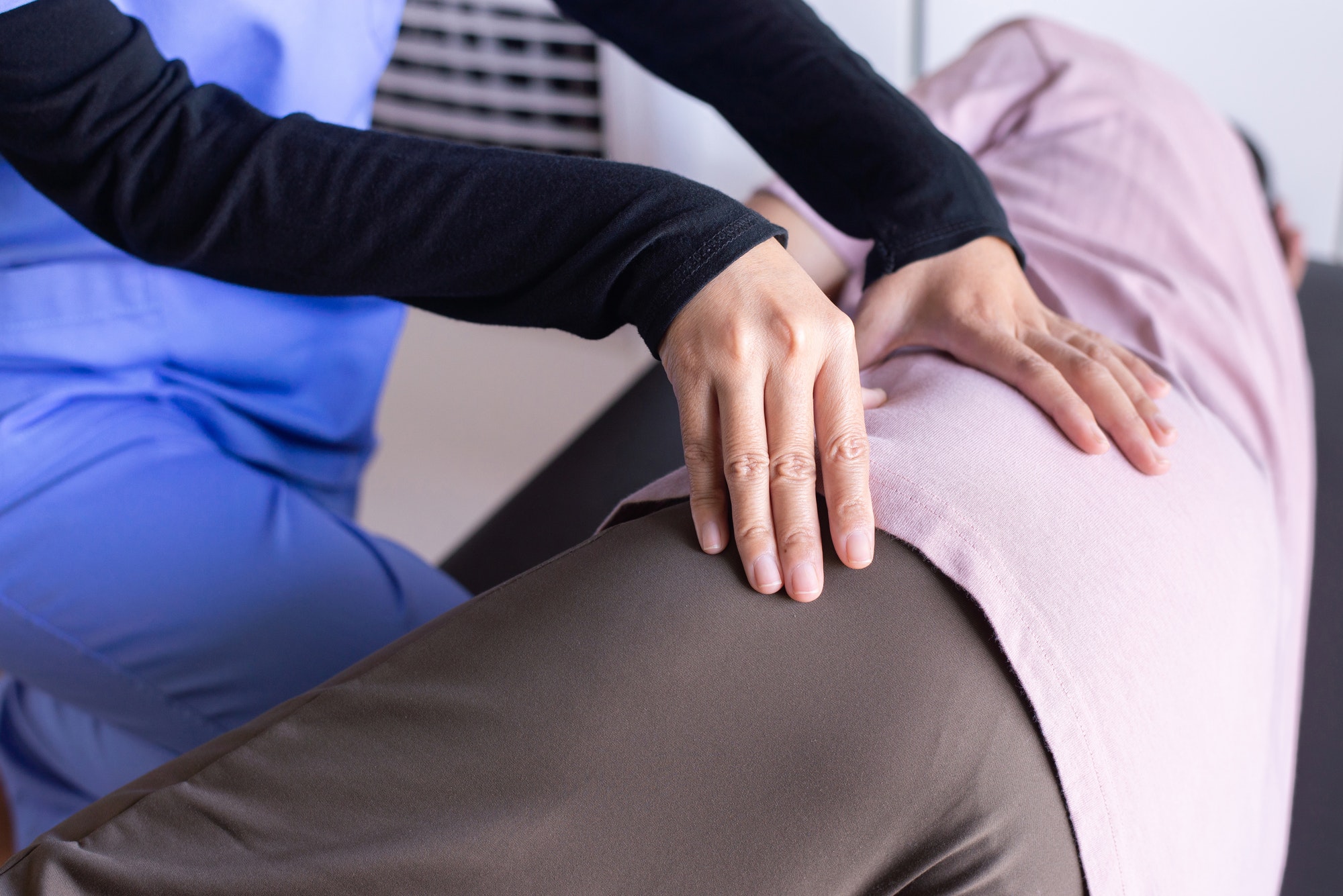
Pain When Walking In Hip
If you are experiencing pain when walking in hip then the first thing to recognize is that it can be caused by a variety of factors. It could be due to arthritis, muscle strains, or even a fracture.
The best way to determine what is causing the pain is to visit with your doctor for an exam and some x-rays.
With that said, let’s still take a look at what could be the possible causes and some solutions.
Hip pain is a common injury, often caused by overuse or misuse of the hip muscles or joints. This can be caused by an impact to the hip, such as from a fall, or it may just develop over time through activities like running.
In this article, you’ll learn about some common causes of hip pain – and some ways to get back on your feet with minimal fuss!
Contents
What Causes Pain When Walking In Hip
Hip pain when walking can be a symptom of a number of illnesses, but is most commonly caused by hip arthritis. Arthritis of the hip joint causes stiffness and pain in the joint.
This results in an inability to fully extend the leg, which makes it difficult to walk properly or do other activities. Hip pain can also be caused by loose cartilage (deformity), or dislocation of the hip joint.
If there are no other symptoms present, then hip pain when walking is most likely due to arthritis.
Osteoarthritis
Osteoarthritis is the most common cause of chronic pain, stiffness, and loss of function in joints. The cartilage that cushions joints breaks down, causing it to wear away over time. Cartilage is not a living tissue and does not heal on its own, so this condition cannot be reversed. The lack of cartilage causes friction between the bones which leads to swelling and pain when walking or standing for long periods of time.
Rheumatoid arthritis
Rheumatoid arthritis is an autoimmune disorder that causes inflammation in the joints. This inflammation can cause pain, stiffness, and loss of movement. The most common joints affected are the wrists, hands, hips, feet and knees.
If you are suffering from pain when walking in the hip, it is possible that you may be suffering from rheumatoid arthritis. This chronic condition affects joints and causes inflammation.
Some of the symptoms include persistent joint stiffness, morning stiffness, lack of energy, and chronic pain. Treatment for this condition typically includes a combination of medication and treatments to reduce inflammation.
Lyme Disease
Walking with a limp is usually a sign of a hip problem, and can often be successfully treated through physical therapy.
If you are experiencing pain when walking in the hip, it could be due to Lyme Disease, which is an illness that is transmitted by ticks and is caused by borrelia bacteria.
Lyme disease is caused by a bacterium known as Borrelia burgdorferi. There are many symptoms of Lyme disease, including fever, headache, fatigue, and a characteristic “bulls-eye” skin rash that appears when the bacteria enters the bloodstream.
If left untreated, it can cause problems in the heart and central nervous system. Commonly treated with antibiotics, Lyme disease can be cured with a course of treatment lasting between two to four weeks.
Gout
Gout is a form of arthritis that’s caused by crystals of uric acid building up in the joints. The uric acid is dissolved in the joint fluid, but when it accumulates and crystalizes, that’s when the pain manifests.
Gout is most common in overweight people and people who have large amounts of high-purine foods in their diet such as liver and alcohol.
One way to tell if you have gout is to check for redness around your joints, swelling, tenderness, or even heat over an area.
Sciatica
Sciatica is a common condition in which there is a form of nerve pressure on the sciatic nerve. This usually causes pain to radiate from the lower back and down through one leg or both legs.
Sciatica can be caused by a dislocated hip, spinal disc disease, and narrowing of the canal that carries the sciatic nerve.
Sciatica is most often caused by a herniated disk in the lumbar spine, due to age and wear. Herniated disks are common in people over 40 years of age. This pain can also be caused by injury to the sciatic nerve.
Sciatica will be worse with prolonged sitting or standing, and may be relieved by bending forward in a seated position or with an ice pack on the painful area.

How Hip Pain Occurs
For many people, hip pain when walking occurs when the head of their femur is not lined up straight with the socket at the end of it. It can also occur if there is a problem with the tissues that surround the joint.
Hip pain can also be due to arthritis, a broken bone in the thigh or pelvis, or spinal stenosis.
The Hip Joint: A Dynamic and Complex Joint
The hip joint is a ball and socket joint and is the largest joint in the body. It’s divided into three regions: trochanteric, femoral, and acetabular. The trochanteric region consists of the top of the femur and its attachment to the iliac or pelvic bone.
The femoral region consists of the top of the femur with its articulation at both the acetabulum and pubic bone. The acetabular region consists of the bony structure that forms a bowl-like socket for the head of the femur to rest in.
Types of Hip Pain
Hip pain can be caused by a number of different diagnoses including osteoarthritis, degenerative joint disease, and muscle strain. People may also experience hip pain as a result of femoroacetabular impingement.
This condition is more common in people with a high body mass index.
Treatments for Pain When Walking In Hip
When faced with hip pain, the first step is to determine whether the problem is muscular or structural. The next step is to identify what activity the pain began after.
If it started during, for example, running, there could be a muscular issue that would respond well to physical therapy. If the pain began after reading in bed one night, there could be a structural issue that requires a medical evaluation.
Prevention
Sometimes the pain is caused by arthritis in the hip joint, but this can be prevented. It’s important to maintain a healthy weight and avoid one-sided activities, like walking on uneven surfaces or using only one foot to stand on.
These actions can lead to weakness of the muscles and eventually to arthritis. If you’re experiencing pain when walking in hip, it’s important to see your doctor who may recommend physical therapy, medication, or surgery.
